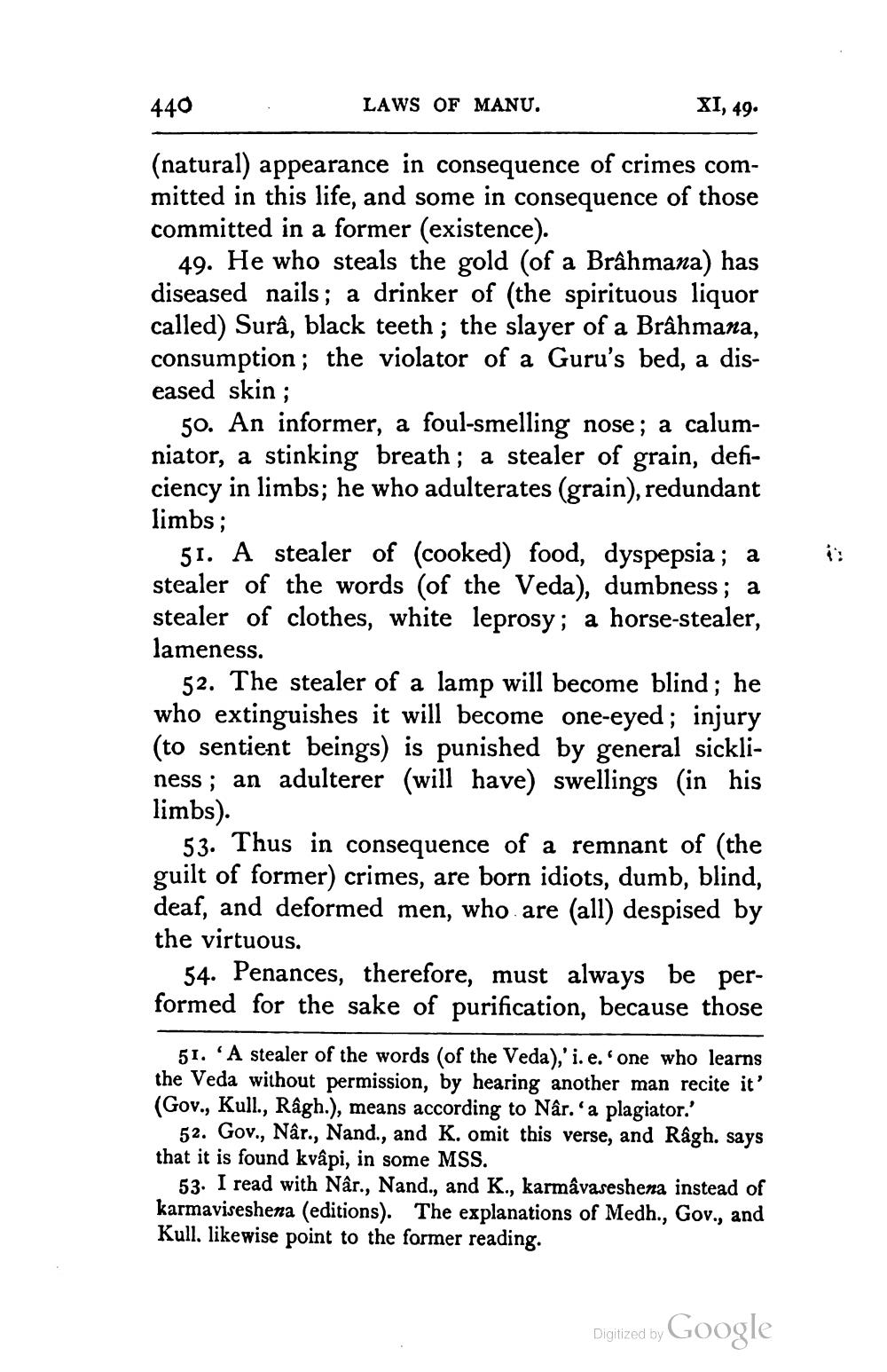________________
440
LAWS OF MANU.
XI, 49.
(natural) appearance in consequence of crimes committed in this life, and some in consequence of those committed in a former (existence).
49. He who steals the gold (of a Brâhmana) has diseased nails; a drinker of (the spirituous liquor called) Surâ, black teeth; the slayer of a Brâhmana, consumption; the violator of a Guru's bed, a diseased skin ;
50. An informer, a foul-smelling nose; a calumniator, a stinking breath; a stealer of grain, deficiency in limbs; he who adulterates (grain), redundant limbs;
51. A stealer of (cooked) food, dyspepsia; a stealer of the words (of the Veda), dumbness; a stealer of clothes, white leprosy; a horse-stealer, lameness.
52. The stealer of a lamp will become blind; he who extinguishes it will become one-eyed; injury (to sentient beings) is punished by general sickliness; an adulterer (will have) swellings in his limbs).
53. Thus in consequence of a remnant of (the guilt of former) crimes, are born idiots, dumb, blind, deaf, and deformed men, who are (all) despised by the virtuous.
54. Penances, therefore, must always be performed for the sake of purification, because those
51. 'A stealer of the words (of the Veda),' i.e. one who learns the Veda without permission, by hearing another man recite it' (Gov., Kull., Râgh.), means according to Nâr.'a plagiator.'
52. Gov., Nár., Nand., and K. omit this verse, and Râgh. says that it is found kvapi, in some MSS.
53. I read with Nâr., Nand., and K., karmâvaseshena instead of karmaviseshena (editions). The explanations of Medh., Gov., and Kull, likewise point to the former reading.
Digitized by Google




